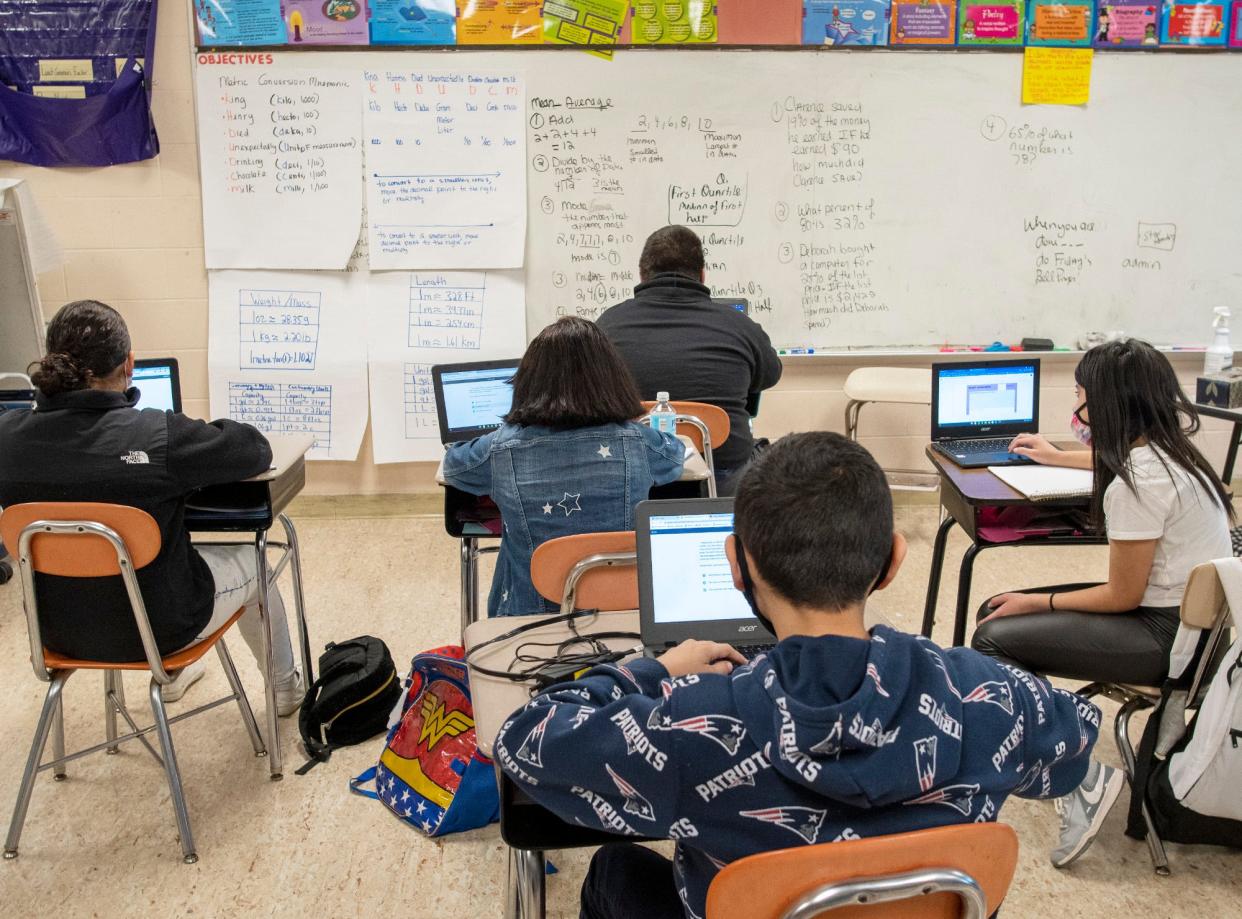Worcester School Committee considers holding families responsible for Chromebooks issued to students

WORCESTER — The School Committee on Thursday agreed to look into adding the district’s student-issued Chromebooks to an existing policy requiring students to take care of school property.
But most members were not eager to establish a special contract with parents holding them accountable for the care of the $300 laptops, despite Superintendent Maureen Binienda’s concern the damage students are doing to the devices will end up costing Worcester millions of dollars.
According to Binienda, replacement of broken Chromebooks could amount to a $1 million annual expense to the district, based on how many devices have been damaged so far since Worcester began a major distribution program of the laptops last year to facilitate remote learning during the pandemic.
Bob Walton, the district’s IT officer, told the committee’s Standing Committee on Governance and Employee Issues at its meeting last week around 500 to 600 of those broken devices might have been intentionally damaged, according to a report of the meeting provided to the main School Committee for Thursday’s meeting.
“Principals tell you they’ll find a Chromebook in the toilet in the secondary schools,” Binienda said, or that many of the devices will just be left around the building.
Even though the district seems to be in good shape this year — a new shipment of 3,000 laptops, more than enough to get the district back to a 1-device-to-1-student ratio, is expected as soon as next week, according to officials — the superintendent said the current situation is not sustainable given the district’s normally tight finances.
“That’s 10 teachers we weren’t able to hire, because we’re spending $1 million on Chromebooks,” she said.
School Committee member John Monfredo proposed holding families more responsible for the devices by creating a contract for them to enter into to receive a Chromebook. But some of his fellow members questioned whether that would be reasonable in Worcester, which has a high population of low-income families that likely couldn’t afford to replace broken devices.
“If I had to pay for a $300 Chromebook, I don’t know where that money would be coming from,” said committee member Laura Clancey, who is also a parent in the school system.
Other members felt it would be too difficult to discern between devices that were intentionally damaged and that those that were broken through routine use.
“(Chromebooks) are extremely delicate — they’re not a sturdy tool,” said committee member Dianna Biancheria. “A bottle of water hits it, you don’t know if it’s going to work anymore.”
Committee member Tracy O’Connell Novick, meanwhile, argued it is unfair in general to put the fiscal burden of a program on parents who didn’t have a say in the matter.
“This committee chose to go to 1-to-1,” she said. “It was not the choice of the families.”
Committee member Molly McCullough proposed a potentially simpler solution to add Chromebooks to an existing district policy that stipulates “all books and equipment shall be returned by the student (to their school) and in the condition in which they were issued.” The policy also says the district reserves the right to collect payment for lost or damaged school-assigned property.
The committee ultimately voted unanimously to consider McCullough’s suggested change to the policy.
The committee also voted 5-2, with Monfredo and Biancheria opposing, to approve a motion by Novick to distribute school-based Chromebooks currently being kept at the new South High School to other schools that need them.
Novick argued the school was “hoarding the devices,” which are on top of the school-issued Chromebooks South High students already have at home, when some students in the district currently don’t have any laptop.
Binienda, who opposed the idea, said those school-based laptops were specifically purchased for the new South High through the Massachusetts School Building Authority; however, and were intended for school-use only, not take-home use like most of the district’s Chromebooks.
Committee chairman Mayor Joseph Petty, who voted in favor of the motion, said the measure would be moot anyway if the new Chromebooks the district has ordered arrive next week.
The committee also agreed Thursday night to send the issue of how to develop a sustainable replacement program for school-issued devices to its Standing Committee on Finance and Operations for further discussion.
This article originally appeared on Telegram & Gazette: Worcester School Committee considers holding families responsible for Chromebooks issued to students

